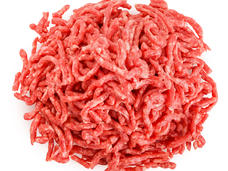| Cancer Information Highlights | | From the National Cancer Institute | | Updating you about cancer causes, prevention, screening, treatment, coping, and more | | | | New from NCI | | DNA Damage Links Colorectal Cancer and Diet High in Red Meat |  | | Researchers have found a pattern of DNA damage in colorectal tumors that may explain how a diet high in red and processed meat can help cause colorectal cancer. | | Advancing Cancer Prevention |  | | The director of NCI's Division of Cancer Prevention, Dr. Philip Castle, discusses the division's priority areas and his vision for making more rapid progress in cancer prevention, including the use of precision prevention and immunoprevention. | Can an Antibiotic Treat Cancer?
Researchers have found that an antibiotic discovered in the 1950s, novobiocin, may kill cancer cells that become resistant to PARP inhibitors. Learn more about this research and the clinical trials that are planned. | | How Cancer Research Saved Emily's Life |  | | In 2012, Emily Whitehead was the first child in the world to receive CAR T-cell therapy. Read about her story and the treatment that saved her life. | Approval of Rylaze Will Address Drug Shortage for Childhood ALL
The Food and Drug Administration (FDA) has approved a new form of asparaginase called Rylaze. The drug was developed to help ease shortages of Erwinia asparaginase, a key part of treatment for children and adults with acute lymphoblastic leukemia (ALL).
| | FDA Approvals | Amivantamab-vmjw
We've added a new drug summary for amivantamab-vmjw (Rybrevant). FDA recently approved this drug to treat adults with non-small cell lung cancer that has spread, has an abnormal EGFR gene, and has worsened during or after platinum chemotherapy. | Pembrolizumab
We've updated our pembrolizumab (Keytruda) drug summary. FDA recently approved pembrolizumab to treat patients with high-risk, early-stage triple-negative breast cancer. FDA also converted pembrolizumab from accelerated approval to full approval to treat people with triple-negative breast cancer that has the PD-L1 protein and has come back and cannot be removed by surgery or has spread. | | | | | Also of Interest | Hot Flashes and Night Sweats
Hot flashes and night sweats can be caused by cancer or a side effect of treatment. They can occur in both women and men. Learn more about hot flashes and night sweats and ways to treat them. | Coronavirus Vaccines and People with Cancer
Many people being treated for cancer are asking whether they should get a COVID-19 vaccine. On this page, an expert answers questions and responds to concerns about the vaccine. | Contact Us for Help
Information specialists at NCI's Cancer Information Service (CIS), NCI's contact center, are available to help answer your cancer-related questions in English and Spanish. Reach us by phone, chat, or email. | | | | | |
No comments:
Post a Comment